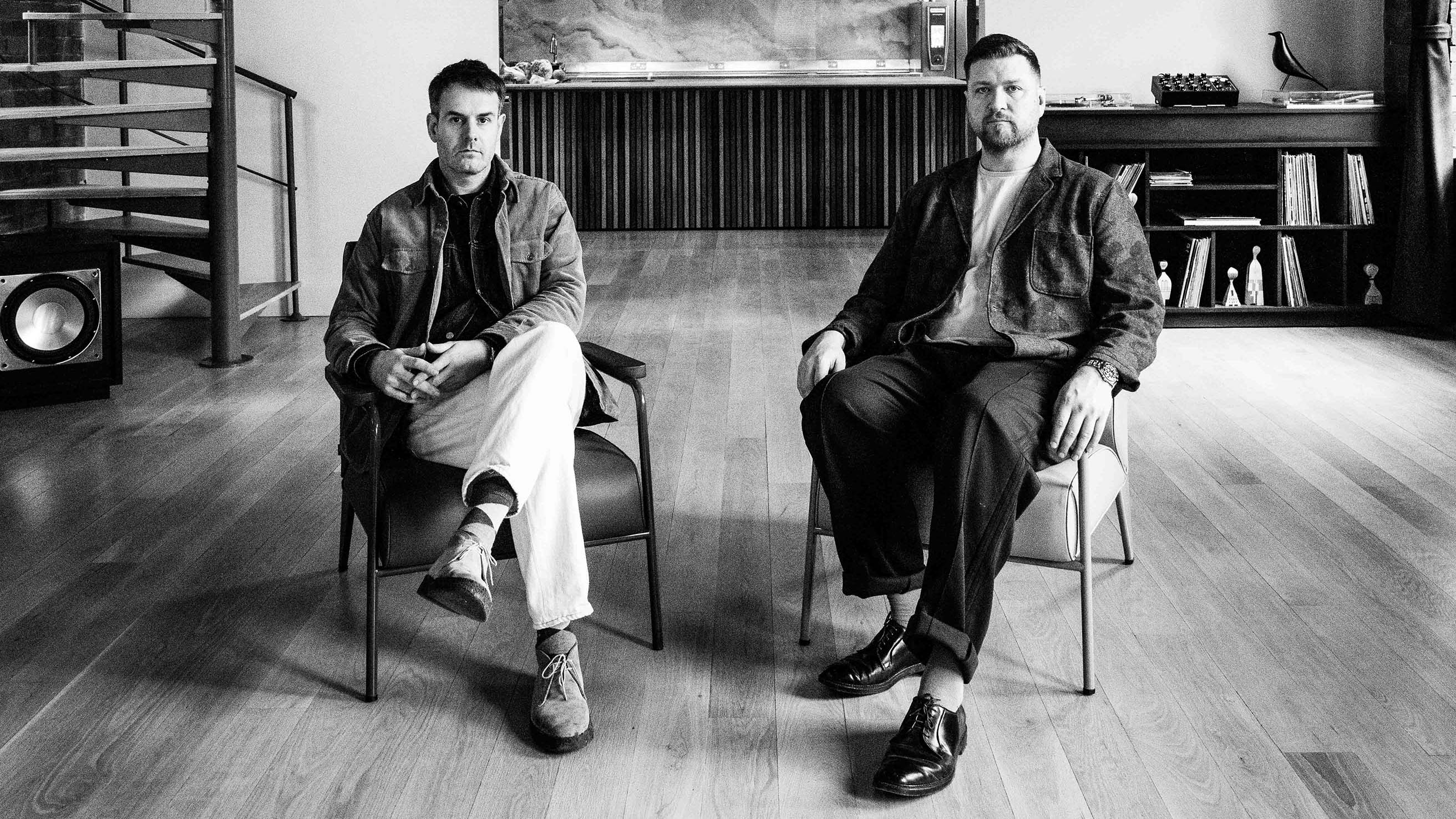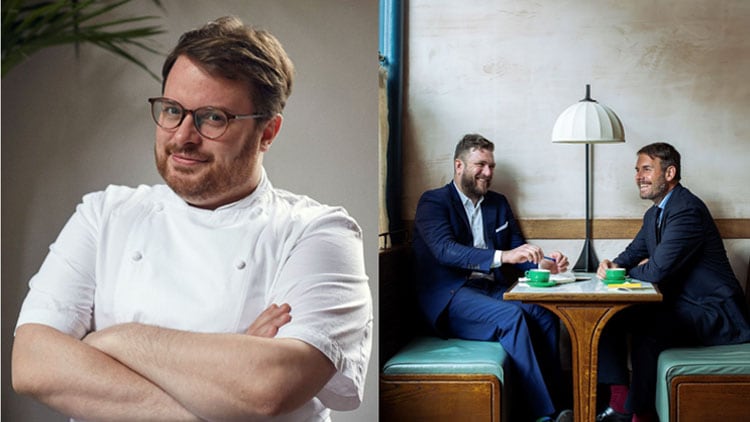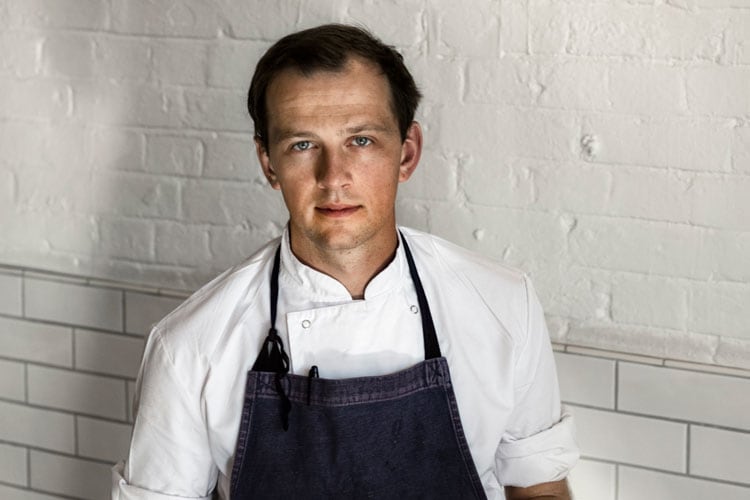Nice office…
Johnny Smith: We wanted to give SMITH & WILLIS a home. Somewhere to bring together everything we love about restaurants. It’s going to be the creative force that drives the business forward. We’d had our eye on this space above LUCA for a while. The day we signed, we were served notice at our old office across the road, so it felt meant to be. It has a Manchester loft vibe, which Daniel and I love. There’s also a mezzanine office at the top where we can deliver Wolf of Wall Street-style speeches to the team below.
Daniel Willis: It’s our office, but it’s also going to be a development kitchen for LUCA and the restaurants we’re creating. We’re also running creative events here.
Factory Records had FAC251, Noma had Noma Test Kitchen and SMITH & WILLIS has The Loft
Johnny Smith
JS: We quietly launched the space with a dinner with Osip (now one of SMITH & WILLIS’ partner restaurants) but it won’t just be about food. We’ll collaborate with designers, artists, and music production companies too. Factory Records had FAC251, Noma had Noma Test Kitchen and SMITH & WILLIS has The Loft.
DW: We’ve got a high-end California Audio sound system. It feels like an installation. The sound is incredibly well dispersed - great when it’s low, and powerful when needed.
What exactly will SMITH & WILLIS do?
JS: We’re ambitious. In the next five years we want three owner-managed restaurants (LUCA being one) and three partnership brands (including Osip). With the owner-managed ones, our aim is to create important central London restaurants. It’s not about filling a market gap, it’s about what inspires us. LUCA, for example, was born from our wine trips to Italy and the building itself.
You recently parted ways with Isaac McHale and The Clove Club. That seems to have sparked new beginnings for both parties…
JS: Yes. Isaac’s always been ambitious with ideas and so have we. We did some amazing things together, but it felt like the right time to explore new ideas. Daniel and I wanted to go and build something of our own.
There’s talk of a new restaurant on the way?
JS: Let’s just say we’ve had some great trips to France recently. And we’d love to bring in a live music element - though getting a licence from Westminster Council isn’t easy…
What kind of people are you looking to partner with?
DW: It’ll be a mix, but generally we’re looking for people who already have something going. We need a certain amount of operational experience, or we will just end up running it for them. Osip is a great example. Merlin (Labron-Johnson) was moving from one site to another, so it felt like the perfect time to help.
JS: We’re shareholders and directors in Osip, but it goes deeper than that. We’re involved in everything from culture and finance to people and wine. We’re launching bedrooms above the restaurant and introducing a concierge service to make it more accessible. Somerset can be tricky to navigate.
We want to build places that people will still love in 20 years
Daniel Willis
How are you funding all of this?
JS: We’ve always been self-funded, with some bank support. For our owner-managed sites, we plan to work closely with landlords and get them to contribute significantly to capex. Retaining control is key. The moment you bring in shareholders, you start making compromises. We don’t want to do that.
You say you want restaurants that are ‘built to last’. What does that mean in practice?
JS: For us, ‘built to last’ is about not cutting corners. We invest in the fabric of the building, our people, and our relationships with guests.
DW: We want to build places that people will still love in 20 years. Restaurants like The River Café, where you can feel the history in the walls. A lot of people are focused on commercialisation. For us, while we must be viable as a business, it’s really about the romance of restaurants.
You’ve already had two huge hits with The Clove Club and LUCA. Do you feel pressure to repeat that?
JS: The stakes are high, but we’re excited. Looking back at The Clove Club, I realise how naïve we were. We don’t have that same naivety now. We know what it takes to open and run a restaurant. Your ambition grows, but so does your skillset.
There’s a lot of talk that the restaurant model is broken. What’s your view?
DW: It’s a tough time, no question. National Insurance increases, TRONC regulations, business rates, energy bills. But creativity often comes from hard times. That’s true of art, music, fashion and - we think - restaurants too. I feel very sorry for anyone that has had to close anything. We went through it ourselves with Two Lights (which McHale relaunched as Bar Valette earlier this year), but the upside is that everyone’s had to raise their game. The quality in London has never been better.
JS: The model is flawed. It’s not as profitable as it once was. But we’re not giving up. We love restaurants and we think over time we’ll be able to adapt and create something sustainable. Right now, people are the priority. Profit has taken a back seat.
In the next five years we want three owner-managed restaurants and three partnership brands
Johnny Smith
How’s LUCA doing?
DW: LUCA turns 10 next year, and we’ve never been more excited. We’ve got a loyal group of regulars, and we feel like part of the community. We’ve got some exciting things planned, including a LUCA book.
You’re both from Manchester. Any plans to open something up there?
DW: We’d love to bring something back to Manchester eventually, but it’s tough logistically, especially with kids. I’m taking mine up there for a holiday soon. It’s important they stay in touch with where we’re from even if I have lost the accent battle. But Manchester’s buzzing.
JS: We’re focused on London for the next five years. But yes, eventually we’d love to return to Manchester as the prodigal sons. There’s a real warmth there. People look you in the eye a bit more.




